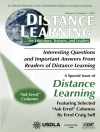Anthony Walsh and Cody Jorgensen’s
Criminology: The Essentials introduces students to major theoretical perspectives and topics in a concise, easy-to-read format. This straightforward overview of key subject areas in criminology thoroughly covers the most up-to-date advances in theory and research while challenging students to consider the applications of these theories and their policy implications. The Fourth Edition includes new topics, events, and developments in criminology.
Cuprins
Preface
1. An Overview of Crime and Criminology
What Is Criminology?
What Is Crime?
Criminality
An Excursion Through the American Criminal Justice System
A Short History of Criminology
The Role of Theory in Criminology
Ideology in Criminological Theory
Connecting Criminological Theory and Social Policy
Summary
Exercises and Discussion Questions
Useful Websites
Chapter Terms
2. Measuring Crime and Criminal Behavior
Categorizing and Measuring Crime and Criminal Behavior
Uniform Crime Reports: Counting Crime Officially
NIBRS: The “New and Improved” UCR
Crime Victimization Survey Data and Its Problems
Areas of Agreement Between the UCR and NCVS
Self-Report Crime Surveys and Their Problems
Crime Mapping
White-Collar Crime: The FBI’s Financial Crimes Report
The Dark Figure of Crime
What Can We Conclude About the Three Main Measures of Crime in America?
Summary
Exercises and Discussion Questions
Useful Websites
Chapter Terms
3. Victimology: Exploring the Experience of Victimization
The Emergence of Victimology
Who Gets Victimized?
Victimization in the Workplace and at School
Human Trafficking
Sexual Assault of Children: Who Gets Victimized?
Domestic Violence Victimization
Hate Crimes
Identity Theft and Other Forms of Cybervictimization
Victimization Theories
Victimization and the Criminal Justice System
Summary
Exercises and Discussion Questions
Useful Websites
Chapter Terms
4. The Early Schools of Criminology
Introduction: Preclassical Notions of Crime and Criminals
The Classical School: The Calculating Criminal
Rise of Positivism
Deterrence and Choice: Pain Versus Gain
Evaluation of the Classical and Early Positivist Schools
Policy and Prevention: Implications of Deterrence Theories
Summary
Exercises and Discussion Questions
Useful Websites
Chapter Terms
5. Crime as Choice: Rationality, Emotion, and Criminal Behavior
Returning to Classic Assumptions of Human Nature
Rational Choice Theory
Routine Activities Theory
Cultural Criminology
Emotions and Their Functions
Policy and Prevention:
Summary
Exercises and Discussion Questions
Useful Websites
Chapter Terms
6. Social Structural Theories
The Social Structural Tradition
The Chicago School of Ecology
The Anomie/Strain Tradition
Extending Anomie: Subcultural Theories
Street Gangs Today
Evaluation of the Anomie/Strain and Subcultural Tradition
Policy and Prevention: Implications of Social Structural Theories
Summary
Exercises/Discussion Questions
Useful Internet Sites
Chapter Terms
7. Social Process Theories
The Social Process Tradition
Differential Association Theory
Social Learning Theory
The Social Control Tradition
Labeling Theory: The Irony of Social Reaction
Policy and Prevention: Implications of Social Process Theories
Summary
Exercises and Discussion Questions
Useful Websites
Chapter Terms
8. Critical and Feminist Theories
The Conflict Perspective of Society
Karl Marx and Revolution
Conflict Theory: Max Weber and Power and Conflict
Other Critical Criminologies
Evaluation of Critical Theories
Feminist Criminology
Evaluation of Feminist Theories
Policy and Prevention
Summary
Exercises and Discussion Questions
Useful Websites
Chapter Terms
9. Psychosocial Theories: Individual Traits and Criminal Behavior
Introduction: The Two “Great Pillars of Psychology”
Intelligence
Temperament and Personality
Conscience and Arousal
Glen Walters’s Lifestyle Theory
The Antisocial Personalities
Evaluation of the Psychosocial Perspective
Policy and Prevention: Implications of Psychosocial Theories
Summary
Exercises and Discussion Questions
Useful Websites
Chapter Terms
10. Biosocial Approaches
The Biosocial Approach
Behavioral Genetics
The Neurosciences
Evolutionary Psychology
Other Biosocial Risk Factors for Criminality
Evaluation of the Biosocial Perspective
Policy and Prevention: Implications of Biosocial Theories
Summary
Exercises and Discussion Questions
Useful Websites
Chapter Terms
11. Developmental Theories: From Delinquency to Crime to Desistance
The Developmental Perspective: Continuity and Change
Risk and Protective Factors for Serious Delinquency
Major Developmental Theories
Evaluation of Developmental Theories
Policy and Prevention: Implications of Developmental Theories
Summary
Exercises and Discussion Questions
Useful Websites
Chapter Terms
12. Crimes of Violence
Violence in History
Murder
Mass, Spree, and Serial Murder
Rape
Robbery
Aggravated Assault
Gun Violence
Theories of Violence
Summary
Exercises/Discussion Questions
Useful Websites
Chapter Terms
13. Terrorism
What Is Terrorism?
The Extent of Terrorism
Domestic Terrorism
Is There a Terrorist Personality?
Theories of Terrorism
Law Enforcement Response and Government Policy
Summary
Exercises and Discussion Questions
Useful Websites
Chapter Terms
14. Property Crime
What Is a Property Offense?
Larceny-Theft
Burglary
Motor Vehicle Theft
Arson
Crimes of Guile and Deceit: Embezzlement, Fraud, and Forgery/Counterfeiting
Summary
Exercises/Discussion Questions
Useful Internet Sites
Chapter Terms
15. Public Order Crime
What Are Public Order Crimes?
Alcohol and Crime
Illegal Drugs and Crime
Prostitution and Commercialized Vice
Summary
Exercises and Discussion Questions
Useful Websites
Chapter Terms
16. White-Collar Crime
The Concept of White-Collar Crime
Occupational Crime
Corporate Crime
Theories on the Causes of Corporate Crime
Law Enforcement’s Response to Corporate Crime
Cybercrime: Oh, What a Tangled World Wide Web We Weave!
Summary
Exercises and Discussion Questions
Useful Websites
Chapter Terms
17. Organized Crime
What Is Organized Crime?
Political Corruption and Organized Crime
A Brief History of Organized Crime in the United States
Other Organized Crime Groups
Theories of Organized Crime
Law Enforcement’s Response to Organized Crime
Summary
Exercises and Discussion Questions
Useful Websites
Chapter Terms
Glossary
References
Index
About the Author
Despre autor
Cody Jorgensen earned a Ph D in Criminology from the University of Texas at Dallas. His main areas of interest include biosocial criminology, policing and forensics, and attitudes and perceptions in crime and justice. He is currently an assistant professor in the criminal justice department at Boise State University and has taught classes on policing, biosocial criminology, criminological theory, statistics, and law and social control. In his spare time he can be found on the trails riding dirt bikes and mountain bikes or on the streets riding motorcycles.












